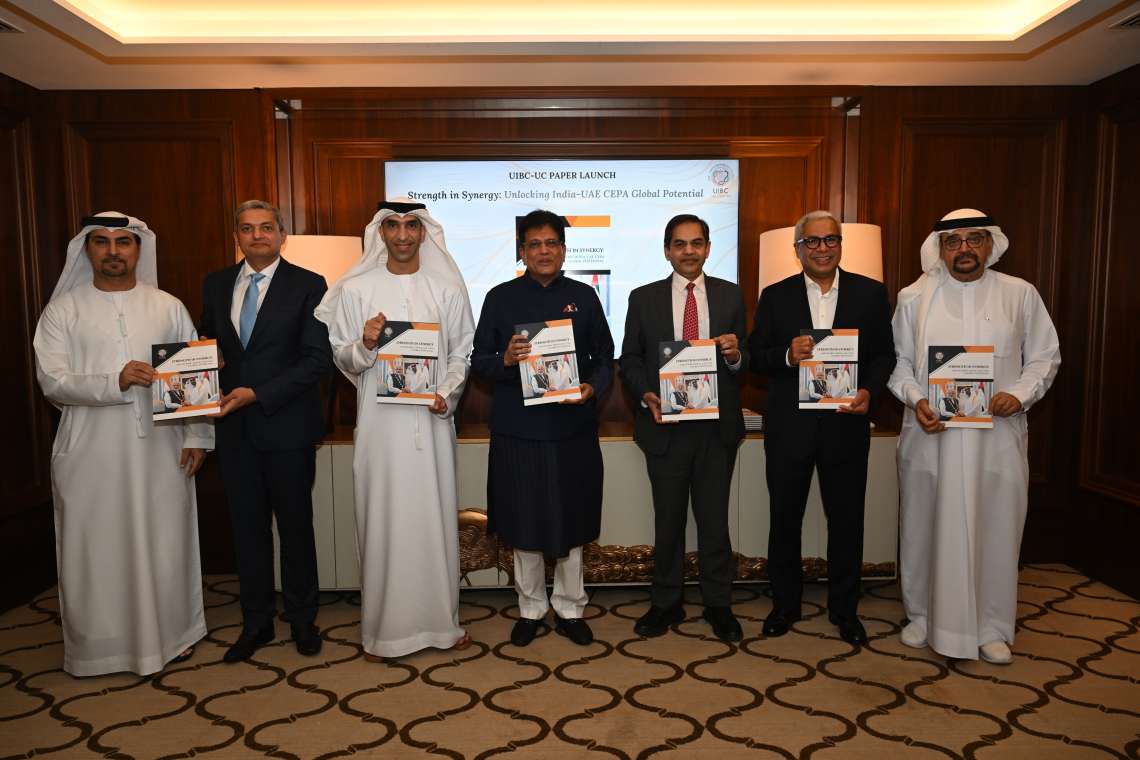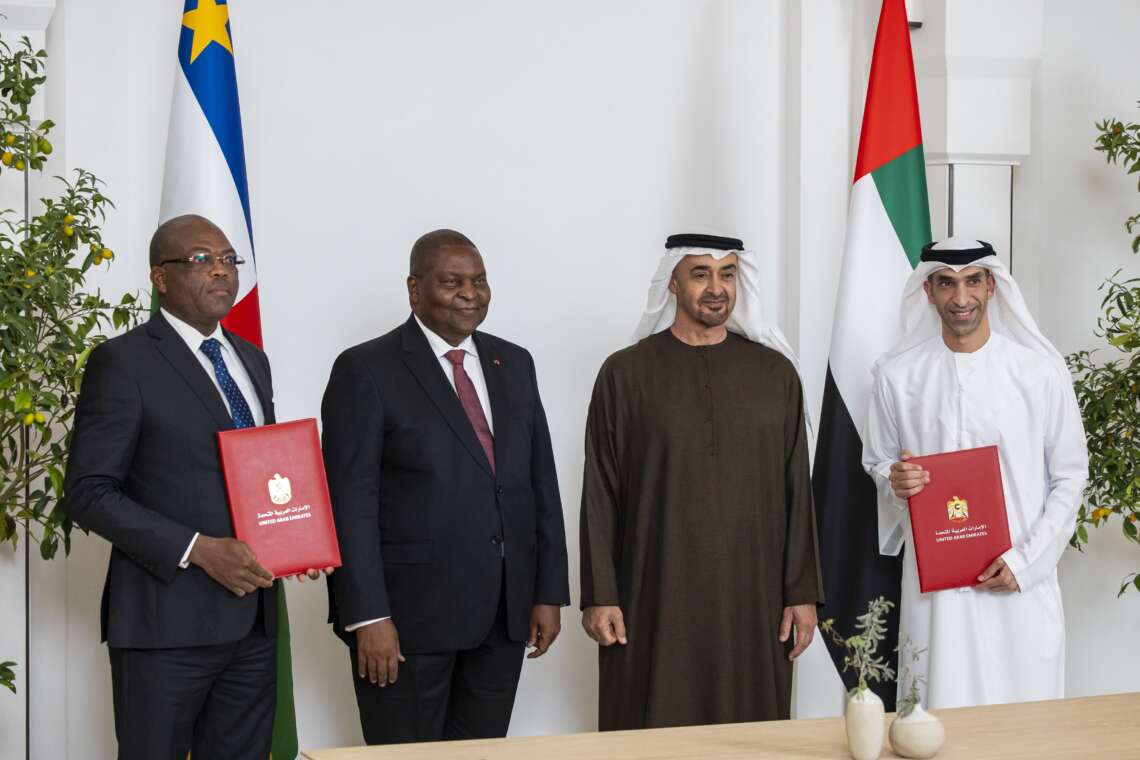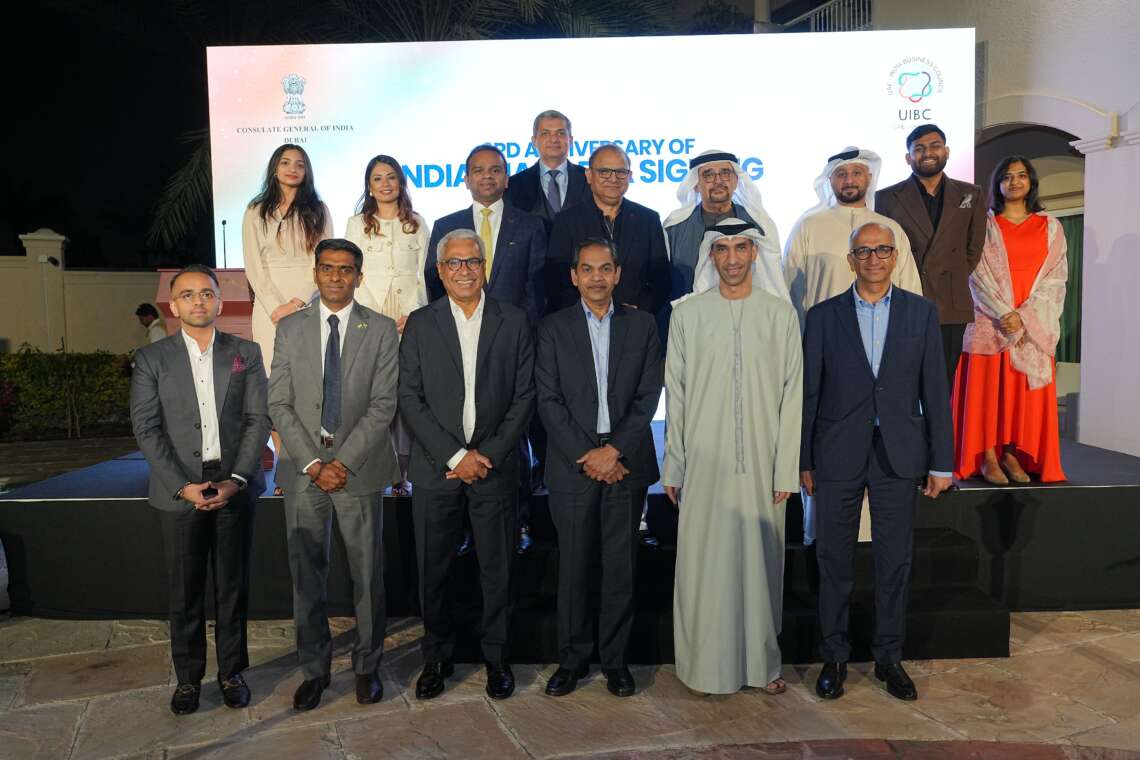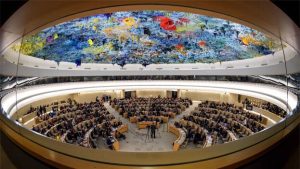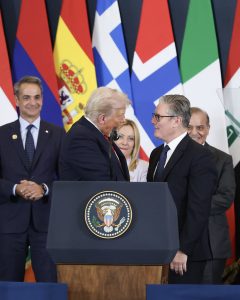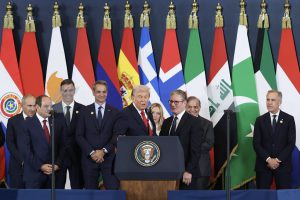India-UAE CEPA delivers record trade growth, expands into AI, sustainability, and space, with UIBC-UC’s new study mapping a blueprint for global innovation-led collaboration.
The UAE-India Business Council – UAE Chapter (UIBC-UC) has unveiled a landmark report, Strength in Synergy: Unlocking India-UAE CEPA Global Potential, at a high-level closed-door meeting in Dubai. The study captures how the Comprehensive Economic Partnership Agreement (CEPA) has transformed the bilateral economic corridor into a dynamic engine for growth, diversification, and global leadership.
The meeting, hosted by UIBC-UC, was attended by India’s Minister of Commerce and Industry, Piyush Goyal, and UAE’s Minister of Foreign Trade, Dr. Thani bin Ahmed Al Zeyoudi, underlining the strategic significance both governments place on deepening ties. Indian Ambassador to the UAE, Sunjay Sudhir, and Consul General of India in Dubai, Satish Kumar Sivan, lauded the council’s pivotal role in fostering economic collaboration. Senior officials, including Aseem R. Mahajan, Additional Secretary (Gulf), Ministry of External Affairs, also joined the gathering.
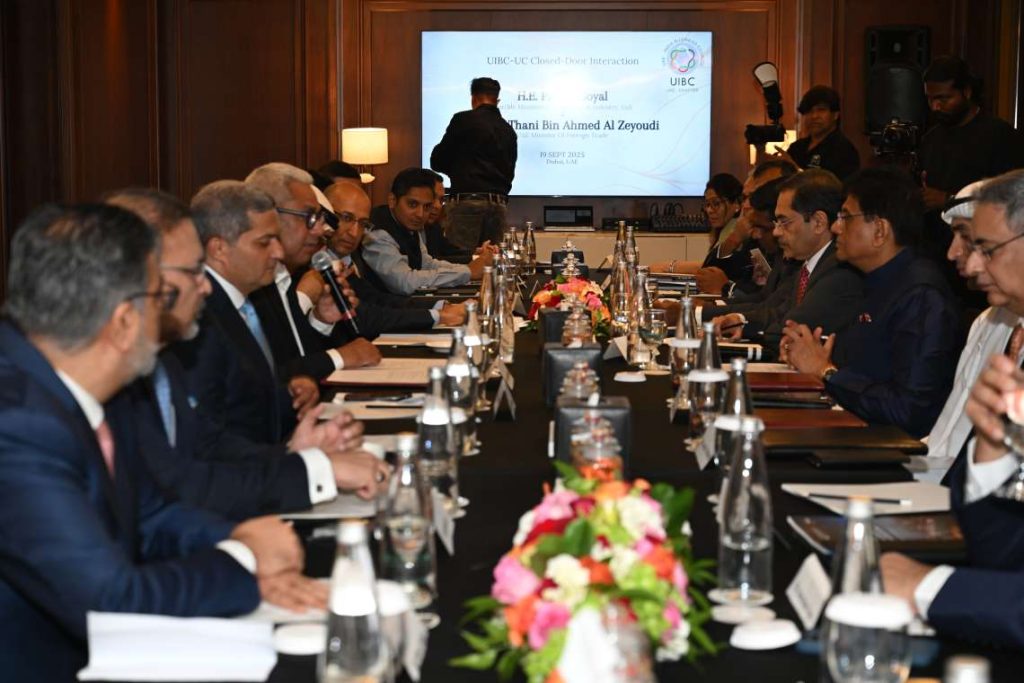
The event saw the participation of prominent industry leaders such as Faizal Kottikollon, Chairman of KEF Holdings and UIBC-UC, Rizwan Soomar of DP World, Major General (Retd.) Sharafuddin Sharaf of Sharaf Group, and Nilesh Ved of Apparel Group. Board members and founding members from leading corporates including Tata Sons, Emirates NBD, Emaar, EaseMyTrip, and Buimerc Corporation further enriched the dialogue, reflecting the scale of private sector commitment to advancing CEPA’s promise.
CEPA’s Transformative Impact
According to the report, CEPA has already delivered historic outcomes. In the first half of 2025, bilateral non-oil trade hit US$37.6 billion, marking a 33.9% year-on-year increase. Beyond headline figures, the agreement has stimulated growth across diverse industries—from gems and jewellery and food processing to digital services, green energy, and telecom.
The accord has also unlocked opportunities in emerging fields such as artificial intelligence, space collaboration, fintech, and sustainability. For Indian states, CEPA has become a tool to attract targeted foreign investment, integrate small and medium enterprises into global value chains, and expand export competitiveness. The UAE’s appeal as a base for Indian high-net-worth investors and family offices has further reinforced bilateral financial and strategic interlinkages.
A Blueprint for the Future
Launching the new study, Mr. Kottikollon described CEPA as “no longer just a trade pact, but a blueprint for the future.” He emphasised that the partnership demonstrates how aligned vision and complementary strengths can create a model for cross-regional cooperation, innovation, and leadership on the global stage.
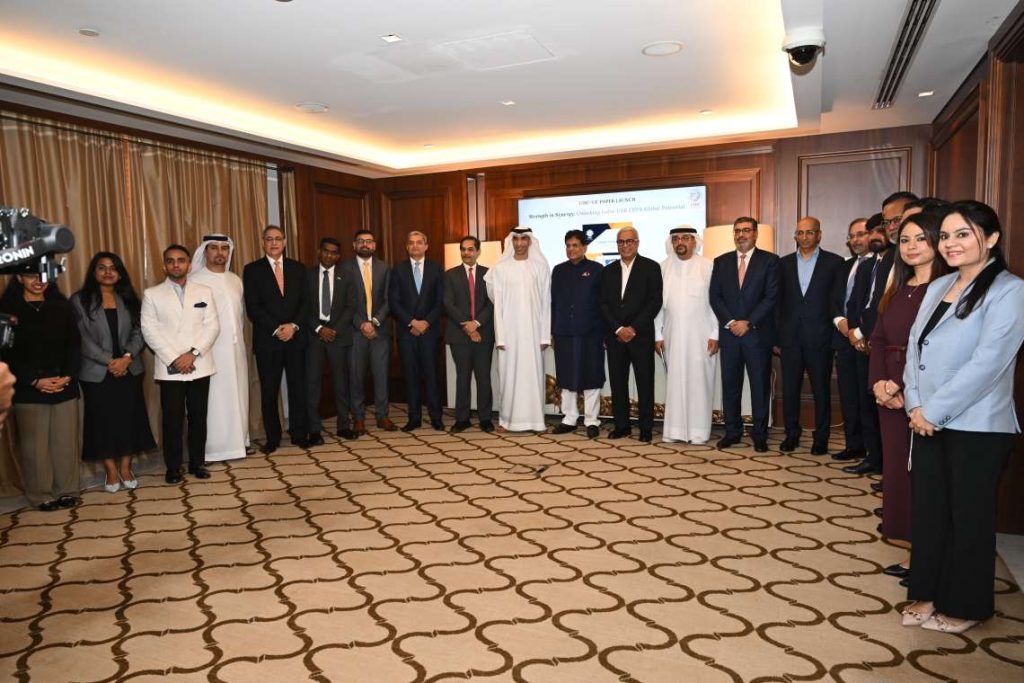
The 2025 paper builds on UIBC-UC’s earlier publication, The India-UAE Odyssey, which traced the historical and cultural depth of the partnership. The new study, prepared by the UIBC-UC secretariat team including Kshitij Korde, Neha Sahni, Simar Kaur, Aiswarria Suchith, and Pratibha Prem Kumar, dives into CEPA’s implementation and its potential to become a global model for resilient, innovation-driven collaboration.
Global Resonance
The report highlights how India and the UAE, both key members of platforms such as BRICS, G20, and the India-Middle East-Europe Economic Corridor (IMEEC), can leverage CEPA to shape global trade governance and sustainable development. It calls for expanded cooperation in clean energy, education, research ecosystems, digital integration, and talent development.
“By combining India’s manufacturing and tech expertise with the UAE’s infrastructure, investment depth, and global reach, we are charting a future-proof and inclusive partnership,” Mr. Kottikollon noted.
The closed-door discussions concluded with a luncheon hosted by UIBC-UC, where senior policymakers and business leaders exchanged ideas on advancing CEPA’s roadmap and solidifying the bilateral economic framework.
As the UIBC-UC study underscores, the India-UAE CEPA has evolved from a trade agreement into a transformative instrument of strategic, sectoral, and global significance—one that could redefine not only bilateral cooperation but also multilateral trade norms in the years ahead.

